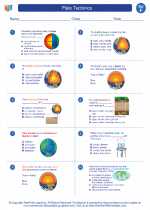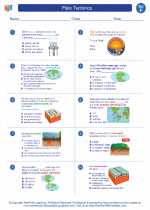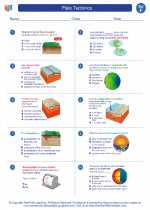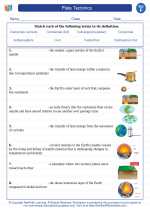Sulfur
Sulfur is a non-metal element with the atomic number 16 and the chemical symbol S. It is found in the Earth's crust, and is the 10th most abundant element in the universe. Sulfur is essential for life and is a key component of many biological molecules, including amino acids and vitamins.
Physical Properties
- Atomic Number: 16
- Symbol: S
- Atomic Mass: 32.06 amu
- Phase at Room Temperature: Solid
- Color: Yellow
- Odor: Characteristic, often described as rotten eggs
Chemical Properties
Sulfur reacts with many other elements to form compounds. Some common compounds include hydrogen sulfide (H2S), sulfur dioxide (SO2), and sulfuric acid (H2SO4). Sulfur can also form compounds with many metals, such as iron sulfide (FeS) and copper sulfide (CuS).
Uses of Sulfur
Sulfur has many important industrial uses. It is used in the production of sulfuric acid, which is a key component in the production of fertilizers, batteries, and many other industrial processes. Sulfur is also used in the vulcanization of rubber, to make it more durable and elastic. Additionally, sulfur is used in the production of paper, detergents, and in the treatment of certain skin conditions.
Environmental Impact
Sulfur can have both positive and negative environmental effects. On one hand, sulfur is an essential nutrient for plants, and is often added to soils as a fertilizer. On the other hand, sulfur dioxide emissions from industrial processes can contribute to air pollution and acid rain.
Study Guide
Here are some key points to remember when studying sulfur:
- What is the atomic number of sulfur?
- What are some common compounds of sulfur?
- What are some important industrial uses of sulfur?
- What are the environmental impacts of sulfur?
Remember to review the physical and chemical properties of sulfur, as well as its role in biological processes and industrial applications.
[Sulfur] Related Worksheets and Study Guides:
.◂Science Worksheets and Study Guides Sixth Grade. Plate Tectonics

 Worksheet/Answer key
Worksheet/Answer key
 Worksheet/Answer key
Worksheet/Answer key
 Vocabulary/Answer key
Vocabulary/Answer key
 Vocabulary/Answer key
Vocabulary/Answer key
 Vocabulary/Answer key
Vocabulary/Answer key
 Vocabulary/Answer key
Vocabulary/Answer key
